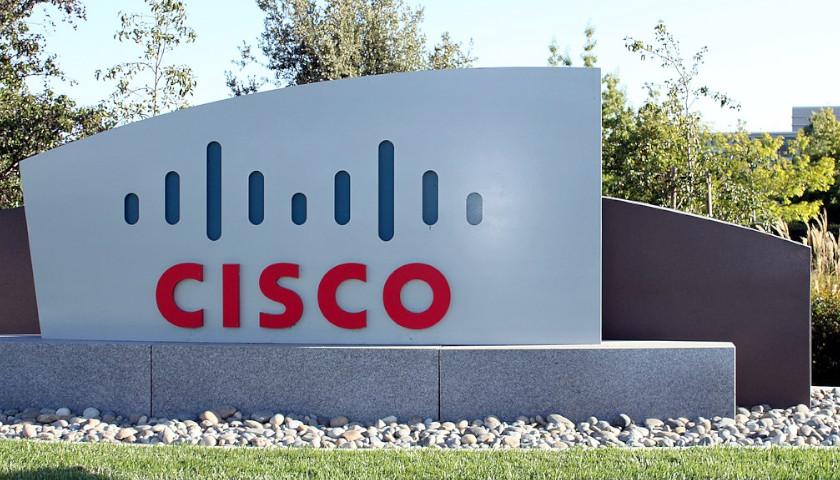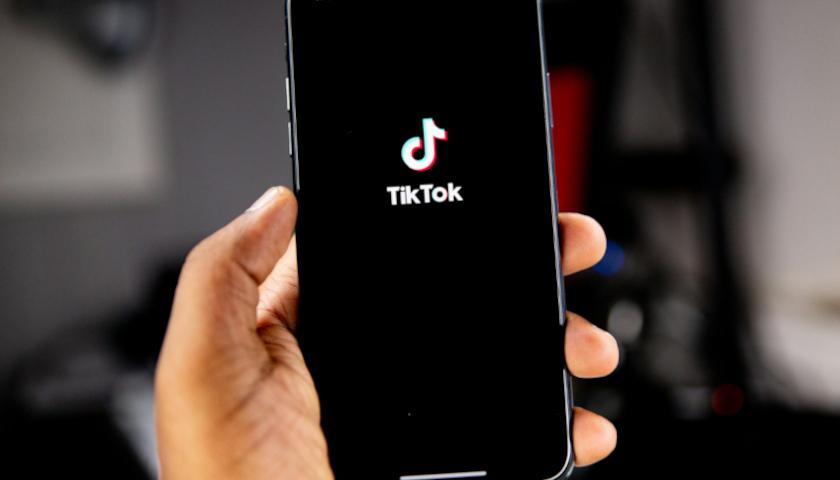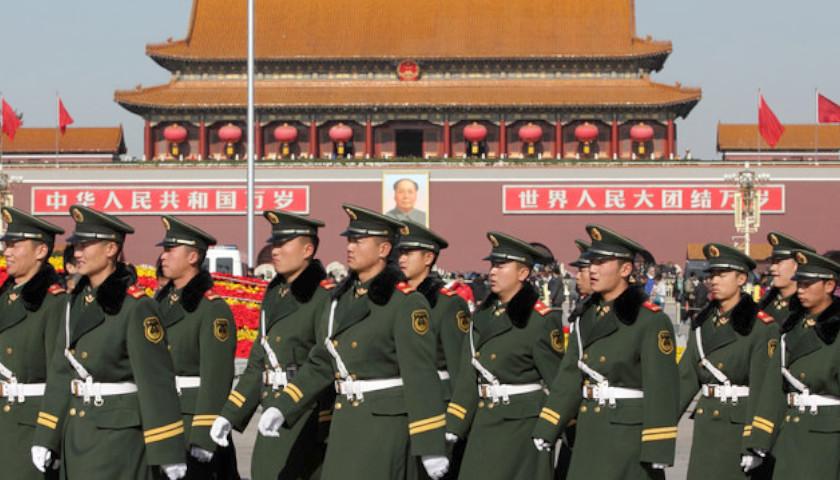by Susan Crabtree
The wheels of justice often turn slowly, but when it comes to U.S. corporate complicity in China’s record of religious persecution, human rights activists say they are finally picking up speed and moving in the right direction.
Top reformers in Washington, D.C., are heralding a recent twist in a 12-year legal battle that could have far-reaching implications for all U.S. companies that have sold surveillance or tracking technology to China.
Last month, the U.S. 9th Circuit Court of Appeals ruled that a lawsuit accusing technology giant Cisco Systems Inc. and two former executives of assisting the Chinese government in identifying and targeting Falun Gong practitioners for arrests, torture, and execution could proceed to trial. The ruling largely reversed a lower district court’s 2014 decision to dismiss the claims against Cisco and John Chambers, its former chief executive officer, and Fredy Cheung, the former vice president of its Chinese operations.
The three-judge appellate panel’s July ruling did not determine the validity of the claims. Instead, it found that the Falun Gong practitioners had presented enough evidence for their case to proceed to trial in California where it was filed.
The legal turn of events is encouraging human rights advocates who have spent decades scrutinizing U.S. corporate involvement in China’s repression of dissidents and religious minorities and its genocide against the Uyghur Muslim population.
“Far too long, many elite leaders of America’s most profitable corporations have aided and abetted the Chinese Communist Party’s heinous human rights abuses, including genocide,” Rep. Chris Smith, a New Jersey Republican, told RealClearPolitics. Smith, who chairs the Congressional-Executive Commission on China, has spent three decades in Washington fighting for human rights.
“This long overdue and wrongly delayed lawsuit underscores the excruciating pain and suffering that corporations like Cisco enable by deliberately cooperating and turning a blind eye to the Chinese Communist Party and its inherent egregious human rights violations and repression in order to make a profit,” Smith added.
Cisco has denied any wrongdoing and has labeled the allegations in the lawsuit baseless. But U.S. Circuit Judge Marsha Berzon, writing for the appellate court, said that the plaintiffs had presented sufficient evidence to proceed to trial and that Cisco’s actions amounted to “aiding and abetting” China’s Falun Gong repression, and had a “substantial effect on the commission of violations of international law, including torture.”
Smith last month held a hearing scrutinizing current U.S. companies’ complicity with China’s forced labor and persecution of many religious and ethnic minorities, as well as dissidents. Testimony from human rights experts highlighted a high-profile case involving forced labor used to make Milwaukee Tool products at Chishan Prison in China. With China’s recent aggression against Taiwan and its military build-up, other witnesses testified about sales by U.S. defense giants, such as Boeing and Raytheon, to the Chinese government.
The National Basketball Association and Major League Baseball ties to China also came under scrutiny in the form of testimony from Enes Kanter Freedom, a former NBA player for the Boston Celtics and New York Knicks. Kanter Freedom was dropped from the NBA in early 2022 after speaking out about China’s human rights abuses and for wearing shoes emblazoned with the words “Free Tibet” and “Free the Uyghurs.”
Tencent, a Chinese tech company that partnered with the NBA to live-stream the games, abruptly pulled all Celtics games from the Chinese internet after Kanter Freedom, who played for the Boston team at the time, called Chinese President Xi Jinping a “brutal dictator.” Tencent and the MLB in 2017 announced a wide-ranging partnership that includes live-streaming 125 games, including the All-Star Game and the World Series.
“It’s shocking that some American corporations are leaving ethics behind and adopting CCP values in China,” Nina Shea, director of the Center for Religious Freedom at the Hudson Institute, told RCP. “That’s what China demands, and too many are willing to comply.”
In 2006, Rep. Smith first started investigating charges from Falun Gong members that Cisco helped construct, operate, and maintain China’s so-called Golden Shield, better known as the Great Firewall of China, an Internet surveillance system put in place by China’s Ministry of Public Security for the surveillance of dissidents, human rights defenders and those practicing banned religions, such as the Falun Gong.
In the late 1990s, the Chinese government labeled the Falun Gong a dangerous cult that threatened Communist control of the country and banned it, setting up an office specifically designed to persecute Falun Gong followers. China then pursued large-scale detentions, torture, forced conversions, and executions of Falun Gong members, which have been well documented by the U.S. State Department, the United Nations, and many other respected organizations around the world. In 2019, the China Tribunal, a government commission in the U.K., found that forced organ harvesting from Falun Gong victims and other prisoners had taken place on a significant scale throughout China for years.
In the current case, brought on behalf of several Falun Gong practitioners by the D.C.-based Human Rights Law Foundation, the plaintiffs argue that Cisco purposefully customized its router technology to allow the Chinese government to identify, track, and detain Falun Gong members. The evidence that Cisco executives specifically helped design the technology to target Falun Gong followers includes Cisco marketing material touting its highly advanced video and image analyzers as the “only product capable of recognizing over 90% of Falun Gong pictorial information.”
The lawsuit also accused Cisco of providing the Chinese government with a library of carefully analyzed patterns of Falun Gong Internet activity, or “signatures,” that enable the Chinese government to identify Falun Gong Internet users; several log/alert systems that provide the Chinese government with real-time monitoring and notification based on Falun Gong Internet traffic patterns; applications for storing data profiles on individual Falun Gong practitioners for use during interrogations and “forced conversions” that included torture; and a nationwide video surveillance system which enabled the Chinese government to identify and detain Falun Gong practitioners.
Cisco was not only aware that its customizations would be used to repress the Falun Gong, but it also geared all of its work to further that goal, the plaintiffs argue. The lawsuit partly stemmed from an internal Cisco document leaked to reporters on the eve of a 2008 U.S. Senate human rights hearing. The 90-page document, an internal Cisco presentation, showed that the company’s engineers regarded the Chinese government’s extensive Internet censorship program as an opportunity to expand its business with the CCP and marketed its routers to China, specifically as a tool of repression.
The Senate hearing also examined the role of other U.S. companies, including Yahoo, Microsoft, and Google, for cooperating to varying degrees with China’s and other foreign governments’ censorship programs.
The Cisco presentation directly acknowledged that one of Golden Shield’s stated goals was to “combat ‘Falun Gong’ evil religion and other hostiles.” It attributed the quote to Runsen Li, the Chinese government’s then-information technology chief in charge of developing the project.
Mark Chandler, Cisco’s senior vice president of legal services, testified to the Senate that he was “appalled” and “disappointed” when he saw that quote in the presentation.
“It is very regrettable that one of our engineers quoted directly from Mr. Runsen Li, the Chinese government’s head of IT for the Golden Shield project,” Terry Alberstein, a senior director of corporate communications at Cisco, told Wired.com in 2008. “They do not represent Cisco’s views, principles, or its sales and marketing strategy or approach. They were merely inserted in that presentation to capture the goals of the Chinese government in that specific project, which was one of many discussed in that 2002 presentation.”
Cisco acknowledged selling roughly $100,000 worth of routers and switches that became part of the Golden Shield project, according to Alberstein. However, he denied that the company customized them for China’s censorship goals.
Sen. Dick Durbin, an Illinois Democrat, chaired that 2008 hearing and argued that U.S. companies have a “moral obligation” to protect freedom of expression.
Terri Marsh, who filed the suit in her capacity as executive director and senior litigation partner of the Human Rights Law Foundation, said unique aspects of the case showed that Cisco was not providing “generic” products to a totalitarian regime. Instead, Cisco created features “to facilitate torture and track the progression of efforts to forcibly convert practitioners.”
“Importantly, the complaint alleges that China could not create similar tools at the time, so the timing of the assistance was significant,” Marsh said in an emailed statement to RCP. And, she said, this is not a case where a tool just happened to be misused.
“Plaintiffs allege that Chinese officials made clear to Cisco that it needed features to further the violent crackdown of Falun Gong believers in China, and Cisco made those features to gain a lucrative foothold in the Chinese market.”
Marsh added that the decision hinges on the specific allegations of conduct that took place in the United States. “The complaint alleges that the heart of the claims – designing the tools, manufacturing components, and providing ongoing assistance – largely took place in California,” she said.
Cisco’s communications team did not respond to RCP’s inquiry. In a statement last month to the Los Angeles Times, a company spokesperson denied that the company customized its products to assist China’s Falun Gong persecution.
“We build our products to global standards, which promote the free flow of information, privacy, and freedom of expression,” the company said. “Cisco has a longstanding commitment to uphold and respect human rights for all people, and we are strongly committed to an open global Internet.”
Smith and other human rights experts point to Cisco’s internal 90-page presentation and other evidence to discount the tech giant’s defense.
“Companies must be exposed and brought to justice if they have blood on their hands from partnerships with businesses and offices controlled by a ruthless ruling party working to crush China’s religious believers, ethnic minorities, and dissidents on their hands,” Nina Shea said. “This case will be important in shining the light on this problem and in deterring others.”
– – –
Susan Crabtree is RealClearPolitics’ White House/national political correspondent.
Photo “Cisco Headquarters” by Prayitno. CC BY 2.0.








